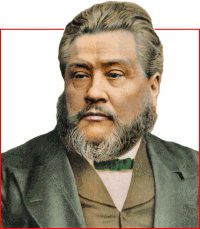Earlier in the week my relations with the guys at TeamPyro were at an all time high. They were exhilarated by the receipt of the Warnie Award. I even began to understand their graphical jokes about link trolls, and all-in-all, we were all happy. I even got this email from a reader they sent my way:
“I’ve just been introduced to your site via the most recent post at Pyromaniacs. As is my custom, I always like to see the background of those who peruse and participate in this and other blogs I happen to [read]. In looking over your site, I could not help but notice the term reformed charismatic. Quite frankly, this term would probably generate a few awkward stares from many of the folks I know . . . . [The writer then explains how most of his reformed friends refuse to believe that reformed charismatics exist.]
Now, as a result of reviewing your site, I come to find out there really is such a thing. And I rejoice to know that . . .
It is indeed nice to know that there are others given over to such doctrines of grace; and that no denomination has such a lock on the truth. And thanks for tearing down yet another stereotype.”
 In the midst of this sudden détente and the beginning of the summer silly season, suddently two posts over at TeamPyro threaten to throw wide open the charismatic chasm that, despite our bridge-building efforts, still divides us.
In the midst of this sudden détente and the beginning of the summer silly season, suddently two posts over at TeamPyro threaten to throw wide open the charismatic chasm that, despite our bridge-building efforts, still divides us.Interestingly, the first post was not intended by them to in any way be about the charismatic issue — but open it nonetheless it does!
If I were to re-title their first post, it would be “Grace Fully Sufficient, Spurgeon, and the Toronto Blessing.”
Two things struck me about this post. The first is the wonder of the doctrine contained in the verse Spurgeon exposits. Spurgeon speaks about the extent of God’s grace, which we cannot exhaust any more than a single man could breathe all the oxygen in the world! It is essential reading for every Christian wherever you stand on the charismatic issue.
The second thing that struck me was that Spurgeon’s response to the revelation of this doctrine—holy laughter—reminded me of the experiences some of us had on the more rational end of the so-called Toronto Blessing, and which continue in an attenuated form in charismatic circles even today.
Here is the beginning of what the Prince of Preachers had to say, and don’t let my stuff about Toronto put you off reading the rest of this fantastic post:
“My grace is sufficient for thee: for my strength is made perfect in weakness.”
I have often read in Scripture of the holy laughter of Abraham, when he fell upon his face and laughed; but I do not know that I ever experienced that laughter till a few evenings ago, when this text came home to me with such sacred power as literally to cause me to laugh . . . continues over at Pyromaniacs.
I would love to challenge the TeamPyro guys . . . and the rest of us (including myself) — When was the last time you experienced such an impact of the Word of God brought to life by the Spirit of God?
Have you ever experienced the weight, and at the same time the lightness, of the presence of God when a truth comes to life that you feel you might (or indeed you actually do!) fall down laughing?
This experience of being overwhelmed by the vastness of the grace and love of God is one I believe is right to seek and to cry out to God for. Do you agree with that? Is it unfair of me to make the accusation that far too many of us — including those of us who claim to be charismatics — fail to seek experiences of God with sufficient passion? Could the weakness of our passions explain the weakness of our Christianity?
Certainly Lloyd-Jones seemed to think so. So much so, that some today would — probably incorrectly — identify him as being a charismatic. But charismatic or not, he was certainly not a classical cessationist. He was clear in his call for experiential Christianity, as a series of posts I ran on the Doctor and the Spirit here on the blog would demonstrate. (Another post on the Sealing with the Spirit didn’t end up in that list of posts, and is also worth a look.)
The passion John Piper demonstrated at the Together for the Gospel conference comes from a remarkably similar view of the Spirit to that which Lloyd-Jones held. Piper and Lloyd-Jones would argue for the vital place of a passionate experience like Spurgeon describ
es. The very description of being so struck by God’s truth is intoxicating, is it not?
 The second post over at TeamPyro that threatens the new-found pax blogica hit at what is perceived by many cessationists to be the charismatics’ weak spot. In my view, the post Red Herrings Tongues of Angels contains a link to some of the most reactionary views on this subject I have ever seen.
The second post over at TeamPyro that threatens the new-found pax blogica hit at what is perceived by many cessationists to be the charismatics’ weak spot. In my view, the post Red Herrings Tongues of Angels contains a link to some of the most reactionary views on this subject I have ever seen.Although it is never stated, the clear implication is that if we tear down the tongues issue, the whole charismatic house of cards comes tumbling down. It is almost as if they realised what excesses the post from Spurgeon potentially opens up!
So, now, to respond to the second post . . .
But even if Dan isn’t wrong, it is quite possible that we are in a period of time when only the beginnings of supernatural gifts are currently being given. These things seem, in my experience, to come in waves, and somehow the outpouring of God’s Spirit does not seem to be constant. There are “times of refreshing” (Acts 3:20). Couldn’t the tongues we often hear today be almost like precursors to those which are more recognisable linguistically? I have certainly heard some that sound to an English-speaker’s ear more like human languages than others.
Remember that the historical facts do not in themselves prove theological arguments one way or the other. When my African friends speak of seeing dramatic miracles, are we to disbelieve them because we haven’t seen them ourselves? Or are we going to be somewhat disingenuous and preach a kind of partial cessationism? Certainly some of that kind of idea is about — John MacArthur, for example, the arch-cessationist, was quite happy to talk approvingly of Huss having prophesied the coming of Luther. For some, cessationism doesn’t apply on the mission field or in the history books, only in the here and now!
I am still waiting for the cessationists to demonstrate from Scripture that all the miraculous gifts (with the exception of authoritative doctrinal revelation) have indeed stopped permanently and forever. I have also not seen them give good explanations regarding the experiences so many of us describe or the benefits that those who speak in tongues receive from them. If the cessationist is correct, then the charismatic is, by definition, either deluded or demonised!.
More importantly, if tongues were never intended biblically to be a prayer language and all the gifts were meant to stop, then I have a number of questions for my cessationist friends about what the Bible says about them:
-
Why does Mark 16 (even if it isn’t in the original autographs, but is instead an early addition to the text) say that those who believe will speak in new tongues; why is there no sense in these words that this experience is limited to the disciples?
-
Why, in Acts 2 when some heard the first outpouring of tongues did they say, “They are filled with new wine.” What was it about the disciples that made them seem drunk?
-
Why does the passage Peter then quotes speak of the Spirit being poured out on “all flesh” in the “last days” if we cannot experience this? Are we now living in the days after the last days? If the gifts were only to authenticate the Apostles, why the wide extent detailed here?
-
How do you explain it when Peter says at the end of his speech that the promise “is for you and for your children and for all who are far off, everyone whom the Lord our God calls to himself” He is clearly referring to the same thing that they had experienced that day? Peter says (to quote the KJV) “this is that,” and yet we are not allowed to experience “that” according to the cessationist and in direct contradiction to Peter’s universal promise.
-
What exactly is it about 1 Corinthians 13 that leads some to assume that the cessation of gifts is tied to the completion of Scripture rather than to the return of Christ?
-
Why does Paul clearly state in 1 Corinthians 4:5 that he wants them all to speak in tongues? Why, if tongues is only ever intended as a proof to the unbeliever would he want them all to do it? Why would he need them all to do it? At most, one or two would suffice to get the point across, and given the moral state of the church in Corinth, desiring still more people to speak in tongues seems almost irresponsible!
-
Why, on the one han
d, are we at liberty to ignore Paul’s clear commands to the Corinthians to “eagerly desire spiritual gifts” and to “not forbid speaking in tongues” (1 Corinthians 14:39) when, on the other hand, we are expected to accept all of his other commands to local churches as applying to us today? If these two commands do not apply to us, which other of Paul’s commands also do not apply? How are we then meant to decide which of Paul’s commands we are going to obey and which we are going to ignore?
-
If tongues are always human languages and never unintelligible, what function did they serve in the churches and why would God use them to communicate a message to His people in some way? (1 Corinthians 14:5)
-
If tongues is not ever a private prayer language, why did Paul say, “I thank God that I speak in tongues more than all of you.” (1 Corinthians 14:18), and for that matter, why does he say, “The one who speaks in a tongue builds up himself” (1 Corinthians 14:4)? What possible good would a tongue—meant solely for an unbeliever whose language is different to that of the speaker—provide for the one speaking in the tongue?
-
Why is it assumed when Paul condemns the disorderly speaking in tongues (which sounds like it was a competition for several different people to be heard at the same time) that his instruction prevents the congregation from, in an orderly manner, praying together at once, either in their own language or in tongues? If this is prevented by Paul’s instructions about tongues “in the church,” then we should also surely prohibit the whole church raising its voice to pray together, as is described in Acts 4:24 where “they lifted their voices together to God.” If nothing else, if tongues is a prayer language, and lifting your voices together to God is ok, then why not praying in tongues? The commands of Paul do not relate to praying to God, but rather to speaking to the church. In addition, Paul’s instructions relate to when unbelievers are present, so surely as a minimum is it not reasonable for the charismatic to apply them to the church’s prayer meeting?
-
If Romans 8:26 is not referring to praying in tongues, then to what exactly is it referring? “Likewise the Spirit helps us in our weakness. For we do not know what to pray for as we ought, but the Spirit himself intercedes for us with groanings too deep for words.”
-
What exactly does 1 Corinthians 14:9 mean if it doesn’t mean what it appears to mean — “So with yourselves, if with your tongue you utter speech that is not intelligible, how will anyone know what is said? For you will be speaking into the air.” It sure sounds like something unintelligible to me!
-
Why does Paul speak specifically about praying in a tongue—“For if I pray in a tongue, my spirit prays, but my mind is unfruitful.” (1 Corinthians 14:4)—if tongues are only ever human languages for the purpose of unbelievers hearing a message?
-
Why does 1 Corinthians 14:26 make clear that tongues are one of the gifts for building up the church if they are only ever real languages for evangelism?
-
Why do so many cessationists actually argue for the exact opposite of what Jesus Himself says in Luke 11 (see the whole context). Jesus ends the parable by saying, “If you then, who are evil, know how to give good gifts to your children, how much more will the heavenly Father give the Holy Spirit to those who ask him!” The cessationist has to deal with the fact that millions of people today have asked God for an experience of the Holy Spirit, and that in direct contrast to what Jesus Himself said, by definition, if cessationism is true, they have not received the Spirit, but rather something else. Where they have asked for the bread of tongues, they have been given the stone of foolish gibberish. Where they have asked for the fish of prophecy, they have been given the serpent of hallucinatory delusions worthy of a madman. This cannot be right, in my humble opinion, as it makes Jesus Himself into a trickster. At the very least, God should have given us clearer directions in the Bible to manage our expectations and help us ALL to realise that cessationism is the biblical teaching. This issue has clear implications for the doctrine of the clarity of Scripture. If Jesus Himself appears to tantalise these people with an offer to give the Spirit to those who ask and really means something very different to the gift of the Spirit we see in Acts, then surely He would have told us!
-
Most importantly of all, if the Bible never intended that we get the impression that gifts are for today, why are there not any real “killer verses” to make it clear to us that this is not the case?
Well, that might put the cat among the pidgeons! Please read it in the spirit in which it is intended. I long for a time when the recognition of the need for a real experience of the Spirit drives us away from both sterile formal religion and an excessive emphasis on tongues – which is, after all, only one of the gifts of the Spirit. I am eager to destroy the myth that I am sure some believe – that charismatics do not have any real biblical basis for their positon. I remain open to being convinced I am wrong from the Bible. So, that’s all I have to say right now. The ball is firmly in your court!













